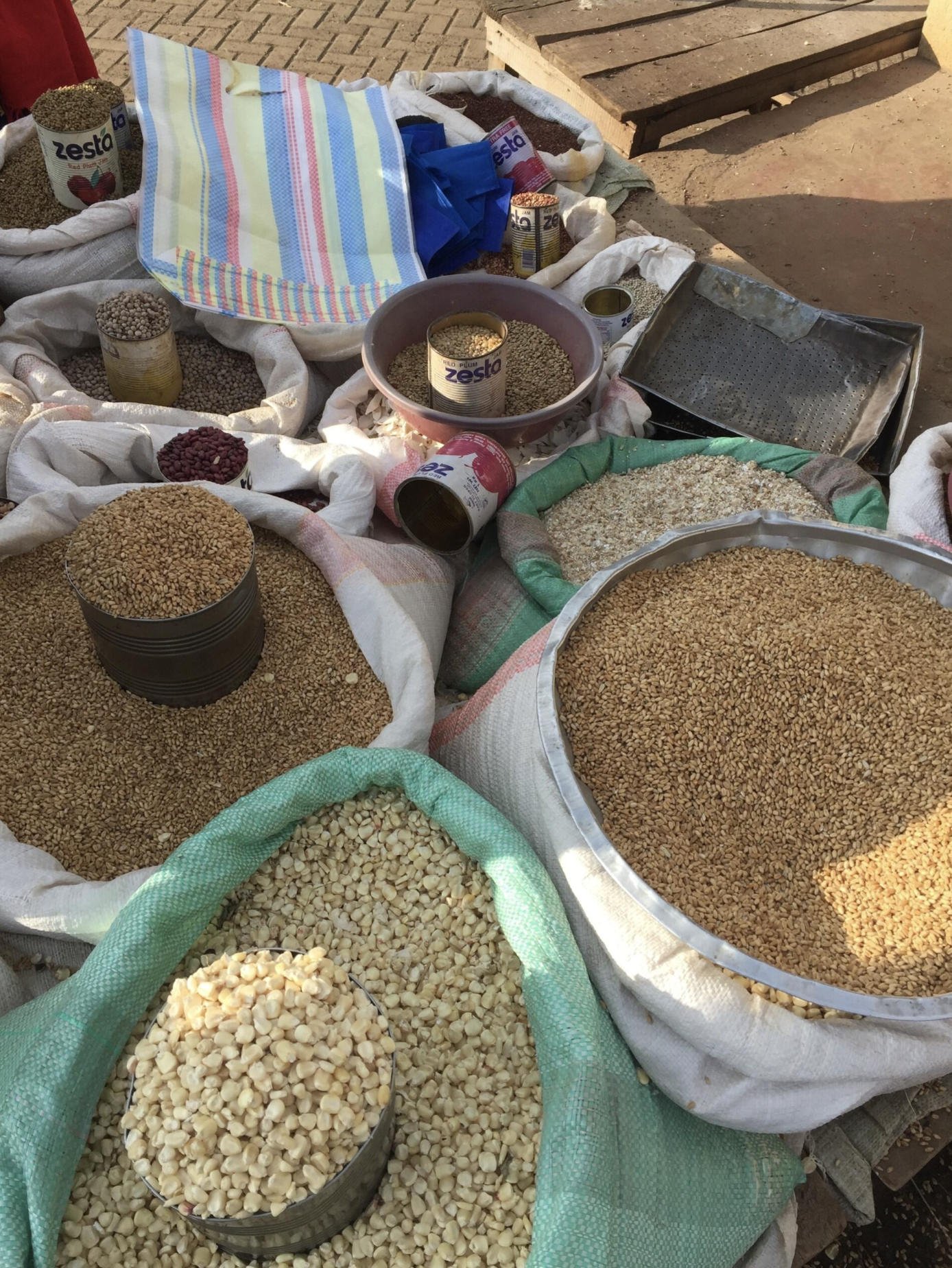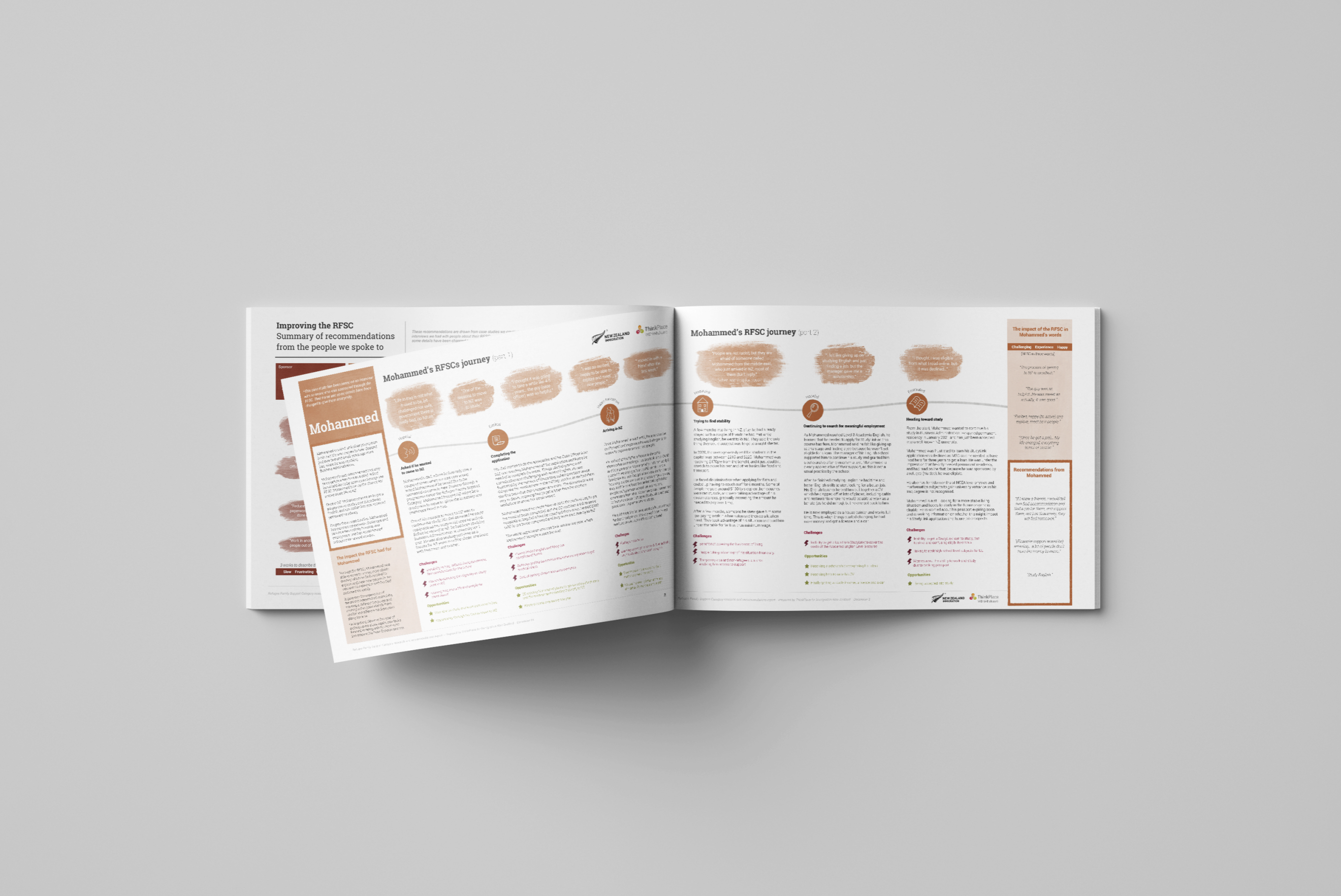Some New Zealanders are unable to open or access bank accounts, preventing them from accessing a vast range of everyday services. The effects compound over time, deepening inequities and limiting the ability of unbanked people to fully participate in society.
With an understanding of the seriousness and complexity of this issue, Westpac New Zealand commissioned ThinkPlace to conduct research to explore the issue and develop understanding about the barriers people may face obtaining a bank account.

The aim of the research was to explore whether it was possible to know how many New Zealanders are unbanked, the barriers they experience, and the impact on their lives as a result. From this, recommendations could be made for how the sector could work together on improving banking accessibility.
Impact
Illuminating the issue of access to banking
Westpac New Zealand wanted to illuminate the issues faced by unbanked communities in New Zealand and highlight how changes could be implemented that benefit them. Many of the organisations we interviewed felt that these issues aren’t talked about enough and were grateful for the opportunity to tell their stories. This work shed light on access barriers and stimulated thinking about how changes could be made to remove barriers, especially for those already experiencing hardship.
Taking a joined-up system approach
The findings were publicly released to initiate actions and initiatives that the entire sector can work on together to improve accessibility to banking.
The problem is complex, and many stakeholders play a role in creating the change that is needed. The solutions, therefore, will rely on a joined-up system approach; regulators, government departments, banks, iwi and Māori organisations, and social services agencies all have a part to play in supporting the change. The report has been used by a range of stakeholders and has been referenced as foundational insight for a range of initiatives and strategies.
Research methods
Westpac New Zealand showed leadership by investing in exploring this issue, and asked for our support to undertake the necessary research to help them understand:
- Who is affected by the problem
- Why they were unable to open a bank account
- How people were impacted by not having an account
- What the estimated size of the issue is
Understanding the unbanked experience
There is no register of the ‘unbanked’ community which makes it difficult to contact those with lived experience. We approached this constraint by identifying and contacting the organisations that would most likely be interacting with the unbanked community and asking for referrals to other organisations that may hold a view on this issue. This purposive snowballing recruitment technique allowed us to hear as many views as possible.
We conducted interviews with 60 representatives from various agencies, such as several government departments, professional bodies (e.g. advocacy and ombudsman agencies), researchers, budgeting providers, community services, health, wellbeing and hauora organisations and rūnanga. We ensured we covered particular special interest groups and achieved a geographic spread.
The majority of the discussions were semi-structured interviews; others were brief conversations with those who directed us to other avenues for information. The people we interviewed had a deep and nuanced understanding of the experiences of unbanked people and the challenges they face.

Insights: What we learned
A high proportion of ‘unbanked’ people are made up of people from vulnerable communities
One of the goals of the research was to understand the scale of the issue. We quickly learned it would be challenging due to a lack of data, with unbanked people being unlikely to engage in a survey to quantify this.
The agencies we spoke to varied in their estimation of the scale of the issue, though all agreed it was a small fraction of the population. This fraction, however, is made up of people from vulnerable communities who have complex situations and are faced with disadvantages.

There are multiple barriers to opening a bank account The research uncovered many different barriers that people come up against when trying to open a bank account, such as proof of a fixed address, financial or digital literacy, access to physical branches or devices, and fear or mistrust. We also heard that specific communities face specific barriers; for example, the barriers faced by rough sleepers varied somewhat to those faced by youth without family support or victims of scams.
People, therefore, used a range of workarounds to live without a bank account or obtain one without the standard requirements. Examples include using Work and Income payment cards or credit unions, begging, and benefit redirection to a friend’s or family member’s bank account.
Sharing the findings
The desired outcome was greater understanding that could be shared across the sector so that, collectively, action could be taken to resolve the challenges to accessing bank accounts. To do this, we developed the following:
- Insights report: The insights report presented the barriers that each community faced when trying to open a bank account, and how not having an account impacted them as they tried to carry out basic activities. This included a summary of prior research and literature that illuminated the problem with greater depth.
- Stories: The insights report included fictional stories [AK1] based on the amalgamated findings that illustrate just how difficult life can be for people when they are unable to access a bank account. This is an effective way to help those unaffected by the issue develop understanding and empathy, which in turn motivates and fosters change.
- Potential solutions: The insights report included potential solutions and how to implement these, drawing on ideas that participants had. We highlighted the opportunities for Westpac New Zealand and banking system stakeholders to deeply understand and respond to the issues faced by unbanked people, identifying necessary systemic changes to ensure accessible banking for all Kiwis.
Generating discussion
When the report was released, it received a lot of media coverage in New Zealand, with most news outlets reporting on it. It also generated discussion online as to how different players in the system could work better to help remove barriers to banking.
Real world impact
One example of the impact created by this report was receiving a phone call from a concerned citizen requesting help as they were supporting a homeless person who didn’t have an account. We were able to connect the person with the Westpac Extra Care team, who were able to help.
We would like to acknowledge all the people and organisations who generously shared their stories in the hope that, together, we can make changes to the banking system so that nobody is left behind.
Resources
If you would like to understand more about the insights and products, please see the following links:
- Final report: https://www.westpac.co.nz/assets/Personal/life-money/documents/Westpac-NZ-Access-to-Banking-in-Aotearoa-Report.pdf
- https://www.stuff.co.nz/business/money/131687307/a-bank-account-should-be-a-human-right–westpac
- https://www.nzherald.co.nz/business/why-tens-of-thousands-of-kiwis-cant-get-a-bank-account/A7SM4VW4FBDPJDYOVJTSTD37CA
- https://www.1news.co.nz/2023/04/10/vulnerable-communities-struggling-to-set-up-bank-accounts



